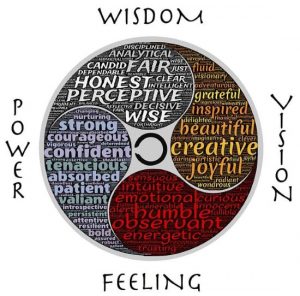How does therapy help?
 Therapy offers numerous benefits depending on your current situation and reasons for seeking support. If you’re seeking a diagnosis or treatment for a mental health condition, therapy can help you manage symptoms, recognize triggers, and lessen the impact of challenging moments. It also enhances coping skills and introduces new perspectives on handling situations you may not have considered. Therapy can provide problem-solving strategies, support, and guidance as you navigate life changes, transforming challenges into opportunities for personal growth rather than seeing them as burdens or obstacles.
Therapy offers numerous benefits depending on your current situation and reasons for seeking support. If you’re seeking a diagnosis or treatment for a mental health condition, therapy can help you manage symptoms, recognize triggers, and lessen the impact of challenging moments. It also enhances coping skills and introduces new perspectives on handling situations you may not have considered. Therapy can provide problem-solving strategies, support, and guidance as you navigate life changes, transforming challenges into opportunities for personal growth rather than seeing them as burdens or obstacles.
Some specific skills therapy can provide are:
- Emotional management, including, but not limited to anger, jealousy, grief, and depression.
- Coping mechanisms to allow you to work through situations which typically cause you anxiety, fear, or avoidance.
- Stress-management techniques to apply to deal with stress within your everyday life, such as with your job and family.
- Skills and techniques to help you better navigate relationships, or to work through relationship troubles.
- Problem solving skills for you to enact when you encounter issues which may typically have caused you to shy away or back down, such as social situations or public speaking.
- Improving self-love, self-confidence, and body image.
- Improving communication, listening, and the ability to speak up for yourself.
- Understanding your own skills, strengths, and positive attributes and learning to quiet your inner negative critique.
- Finding a resolution to the issues that originally led you to therapy, such as having panic attacks, or being unable to sleep.
Overall, psychotherapy is a valuable resource for anyone looking to improve their mental and emotional well-being.
What to expect on your first visit?
Your first therapy session has two main goals:
1. Assess your circumstances
 In our first meeting, we will focus on understanding your current situation. While my expertise aligns with the reasons you’ve chosen to seek therapy, we’ll need to explore the unique aspects of your circumstances. This will help us determine the most appropriate therapy approach for you, what it will involve, and how it can be integrated into your daily life. Additionally, I may suggest activities for you to engage in outside of our sessions, such as practicing a specific technique or reading a recommended book, as your active participation is essential to your healing process
In our first meeting, we will focus on understanding your current situation. While my expertise aligns with the reasons you’ve chosen to seek therapy, we’ll need to explore the unique aspects of your circumstances. This will help us determine the most appropriate therapy approach for you, what it will involve, and how it can be integrated into your daily life. Additionally, I may suggest activities for you to engage in outside of our sessions, such as practicing a specific technique or reading a recommended book, as your active participation is essential to your healing process
2. Build a relationship
Our first session will feel more like a two-way interview. I’ll take the time to learn about you, and you’ll also have the opportunity to learn about me. I’ll ask questions to help me understand your main concerns, as well as your personal history, including life events, family background, childhood, and career. You’re also encouraged to ask any questions you may have. For therapy to be effective, it’s essential that we build a relationship that is both supportive and honest. In fact, the strength and quality of our connection will play a key role in achieving your therapy goals. A strong “meeting of the minds” between client and therapist is the most reliable indicator of a positive and successful outcome. Each client-therapist relationship is unique, but certain values and themes are consistent across all sessions. You can expect the following:
- You can expect to be treated with compassion, empathy, respect, and understanding at all times.
- You can expect a therapist who is fully present and ready to listen to both your experiences and your interpretation of what you’re going through.
- You can expect to receive well-informed, scientifically supported techniques and insights to help you overcome your mental health challenges.
- You can expect to enter a safe, supportive, and confidential environment.
- You can expect to gain practical strategies and techniques that you can apply to create positive changes in your life.
I look forward to getting to know you and helping you reach your therapy goals.
Is therapy confidential?
As a general rule, all therapy sessions are confidential, and everything you discuss with your therapist will remain private unless you request otherwise. This confidentiality is protected by law, which all therapists are required to follow. No information from your sessions can be shared without your prior written consent.
There are exceptions to this law however, and the therapist can disclose information from the session to legal authorities or appointed persons if any of the following are true:
- The therapist suspects abuse to a child, dependent adult, or an elder, or are made aware of domestic abuse. These situations all require the therapist to notify law authorities immediately.
- If the therapist suspects an individual has caused, or is threatening to cause severe bodily harm to another person, therapists are required to report it to the police.
- If an individual intends to harm himself or herself, expressing to the therapist for example, plans for suicide. While the therapist will attempt to work through this in the therapy session, if it appears to be unresolved or the client does not cooperate, additional action may need to be taken to ensure the safety of the client.

